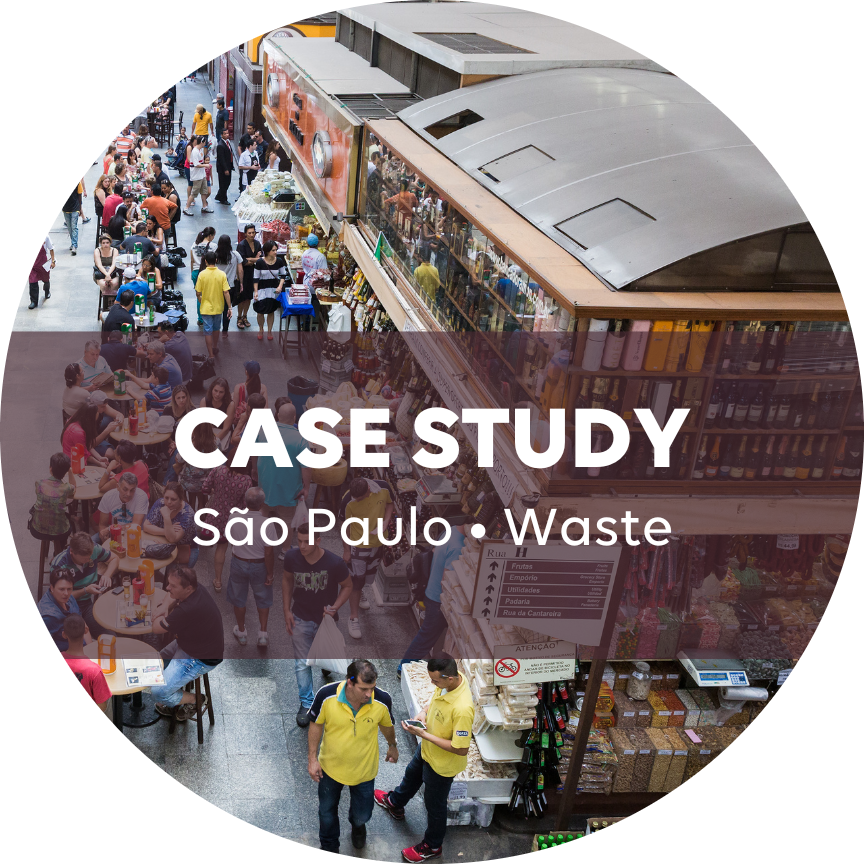São Paulo • A circular food system to reduce organic waste
To address its waste problem, the city has adopted various strategies to divert this organic waste from landfills, notably towards decentralised composting yards and to integrate it into the city’s award-winning circular agriculture programme “Connect the Dots”.

As the most populated city in Brazil, São Paulo produces about 100,000 tonnes of organic waste every year from its hundreds of street markets, and almost 100,000 tonnes from the pruning of trees and plants, in addition to organic household waste. The waste sector accounted for 8% of the city’s emissions in 2017. To address this problem, the city has adopted various strategies to divert this organic waste from landfills, notably towards decentralised composting yards and to integrate it into the city’s award-winning circular agriculture programme “Connect the dots”.



